
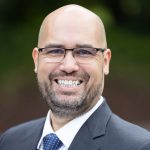 Frank Lazaro is a leader and innovator within the AEC industry. He uniquely blends his extensive experience with pioneering AI-driven marketing content creation and generation methodologies. With over two decades of experience in marketing, technology, and strategy, he has cultivated an impressive track record for creating and marketing revenue-generating products.
Frank Lazaro is a leader and innovator within the AEC industry. He uniquely blends his extensive experience with pioneering AI-driven marketing content creation and generation methodologies. With over two decades of experience in marketing, technology, and strategy, he has cultivated an impressive track record for creating and marketing revenue-generating products.
His innovative approach is rooted in his solid foundation of industry knowledge. He has held influential positions at global brands like Deloitte, AT&T, and First Data, accumulating valuable experience across various sectors and industries. This, combined with his MBA, unwavering dedication to technology, and transformative power of AI, has kept him at the forefront of the fast-paced, ever-evolving industry.
As an accomplished inventor, Frank holds an impressive portfolio of US patents for business processes and product design, earning him recognition as a true innovator. His natural talent for building highly effective teams and programs has consistently delivered remarkable results, solidifying his reputation as a results-driven global executive.
As an author, Frank has penned the “AEC Marketer’s Guide to Artificial Intelligence” and “Let Me Be Frank with You, showcasing his passion for sharing his expertise and connecting with readers. His books serve as a testament to his depth of understanding and his mission to shape the future of AEC through writings and initiatives that blend creativity with cutting-edge technology.
Frank Lazaro’s passion for technology, innovation, and creating growth-driving solutions is unparalleled, making him an invaluable asset to any organization. He continues to inspire and empower professionals within the industry by sharing his knowledge, insights, and strategic vision.
Connect with Frank on LinkedIn and follow him on Facebook.
What You’ll Learn In This Episode
- How we get beyond the AI hype
- How it’s changed marketer’s approach to creating content
- Where the biggest impacts are today, especially for smaller businesses
- Where AI is going
![]() This transcript is machine transcribed by Sonix.
This transcript is machine transcribed by Sonix.
TRANSCRIPT
Intro: Broadcasting live from the Business RadioX studios in Atlanta, Georgia. It’s time for Atlanta Business Radio. Brought to you by On pay. Atlanta’s new standard in payroll. Now, here’s your host.
Lee Kantor: Lee Kantor here another episode of Atlanta Business Radio and this is going to be a good one. But before we get started, it’s important to recognize our sponsor, Onpay. Without them, we couldn’t be sharing these important stories. Today on Atlanta Business Radio, we have Frank Lazaro with A.E. Marketer. Welcome.
Frank Lazaro: Hey, thanks for having me.
Lee Kantor: Well, I’m excited to learn what you’re up to. Tell us a little bit about a marketer. How you serving folks?
Frank Lazaro: Yeah, absolutely. So focused on, you know, running a marketing department for an AEC firm. So an architecture and engineering firm here in Atlanta. And it was a small firm. And I’ve always been kind of focused on technology and really focused on trying to figure out how to use technology. And so when I started really started coming out about two years ago, about a year and a half ago, I started leaning into that to kind of figure out how do I supplement and augment a small marketing team to kind of operate like a big marketing team, and it just kind of evolved into there’s got to be other businesses and other small marketing departments that could benefit from this. So I started leaning into figuring out how to help people and train people on how what I was doing personally, on how they could do it with their marketing.
Lee Kantor: So what kind of is the low hanging fruit when it comes to having a team start maybe experimenting or integrating AI into their workflow?
Frank Lazaro: Yeah. So it’s interesting. I think that most people think that I immediately jumps to like client deliverables or some kind of output or, you know, some kind of document or something that you’re going to give to a client. But a great place to start is to really kind of focus on, say, yourself or things that are kind of more, less risky, like social media. So when you think about creating a social calendar, you know, typically with a small marketing department, it’s always that, well, we’ll get to it, we’ll get to it. And then you find out you’re not getting into the cadence that you would want to when it comes to creating social content. So I would start with looking at basic writing. You know, anything that you’re doing from a content creation perspective, whether it’s social media, whether it’s working on presentations or you’re responding to proposals or you’re creating product sheets, AI is a great tool to kind of help augment and become your editor when it comes to creating that content.
Lee Kantor: So can we get kind of granular on this and talk about like, say, someone out there is listening and they’ve never done this before? What is kind of the like? What is the prompt you would use to start like a social, if you were going to use it for social purposes, social media purposes. And in terms of like, you can’t just say, I’m an architect, write me a social post. Like you have to be very kind of specific in your terminology, or else you’re not going to get any outcome you’re happy with.
Frank Lazaro: Yeah, absolutely. So when it comes to AI, particularly the generative AI, words matter. So how you phrase it and how you ask questions really kind of dictates the kind of content you’re going to get on the back end. And I think one of the things that people struggle with is that they, they, they ask questions that are very shallow or very open ended, and you end up getting a response that’s not very good or it’s very generic or very off topic. Right. So it’s one of those things to where it’s how you ask it. So typically. I think of this as.
Lee Kantor: Show me, just share like a bad example and a better example.
Frank Lazaro: Yeah, absolutely. I think, um, I think one of those things, when you think a good example, a bad example would be, is write me a social media post for my company, and you can put in your company information, um, or my industry or something like that, and not a lot of detail when I think about writing a good prompt is I always start off with a persona like, hey, you are, I am. You are an expert social media creator. I am a product manager. I am writing or wanting to write content for my social media calendar and it needs to be on this topic, this industry. These are my clients. Um, this is who I’m targeting. Um, this is all the details about my product. And so you think about that layered, um, you know, typically when I’m asking it and writing content, you know, my prompts are usually, you know, a paragraph or so long, they’re not one sentence. It’s not it’s not as simple as you think it would be. It’s very much all the detail that you can provide around the product, the services, what you do, who you’re targeting, what you want the AI to act like is really going to dictate how well the content gets created.
Lee Kantor: Now, I think that that information is probably news to a lot of novices that are playing with AI, because the way that AI to me is being, um, at least talked about, it’s oh, it’s just like a person, you just add it’s your assistant, you just ask it and and you have to be super granular and specific if you want an output that’s anywhere useful for you specifically. Otherwise it’s like you said, it’s too general and it’s kind of meaningless.
Frank Lazaro: Right? So the way I the way I like to frame it up, or the analogy I like to use, is think of this as you had an intern that was starting next week, summer intern, and you went up to that intern and said, I need you to go write some social media posts and then walked away from the intern. What kind of social media post do you think that you would get? Not very good ones or things that were very off topic or not on brand or something, but if you went back to that same intern and said, hey, I need you to write some social media posts, here’s our social media calendar, here’s our content and topics. Here’s everything that we’ve ever done on social media. Here’s our brand guidelines. Here’s our brand voice. This is what I want you to write on. You gave all those details. What kind of output do you think that you would get from that intern? Probably something that was a lot better. So when I think about I, I think of it as I’m speaking with a human being and it’s a human being that’s very, very smart but not knowledgeable enough about you. So you have to give it all that context and information for it to be, to utilize those, those smarts. So I treat it like an intern. I treat it as if it’s a human being, and I and I give it instructions as if I’m explaining it to somebody that doesn’t know what they’re doing, but they’re super smart and can figure it out.
Lee Kantor: Now, when you’re doing that, are you can you send it to the website or go to look up information about my company so that they have some more context, more than what you’re saying in the prompt?
Frank Lazaro: Yeah, there’s a couple ways to do that. And honestly, it really depends on which tool you’re using. So I’m going to use ChatGPT. That’s kind of like the the big elephant in the room that everyone knows about. If you’re on the free version, you’re basically going to have to cut and paste in information about it. So if you have a company profile, a product sheet or something, you can kind of cut and paste it into it and say, use this information to generate the content you’re going to create. If you’re using the paid version of that, you can actually just use the attachment feature and add those attachments to it. So there’s a couple ways that you do that. And that’s typically what you call like training the AI or prompt priming, meaning that I’m giving it all this additional context before it actually starts to create content. So therefore it’s going to give me a better response. So if I went in there and I gave it a company profile, I gave it all my product sheets, I gave it, um, my my ideal customer profiles, I gave it my branding guides, and I gave it all this information and also gave it some previously written content. This is all my social media that I posted in the last month. It’s going to use all of that information then to generate a better response for you. So then it’s actually more on brand and it’s more on your brand voice. And so it does that. But if you just generically ask it, it’s just going to make it generic. It’s going to sound like it’s any company that that’s doing the same thing that you’re doing.
Lee Kantor: Now. Do you have to input all that data every time you use it or does it remember. Oh, this is Frank from last time. I don’t have to get all of his info anymore. I already know it. Yeah.
Frank Lazaro: So again, it goes back to what, depending on which version you’re using, if you’re if you’re on the paid version, you have the option to kind of save that stuff. And you can create what they call a my GPT, which is something that you can basically just continue to repeat it without actually having to retrain it. If you’re on the free version, it’s something that you have to do each time. So there’s there’s pros and. Cons to when you pay for it and you don’t pay for it. In this particular instance, if you’re wanting to do that, paying for it, the $20 a month or whatever it is, it’s very beneficial. I’ll give you a great example. So everything that I’ve ever written, both my books, all my social media, all the articles, everything that I’ve ever written, I’ve actually have it stored in a, in a, in a ChatGPT my GPT, and I use that to create my own social media. So it knows my writing style. It knows everything that I’ve written before. It’s seen, it reads my books, it has my bio, it has everything. And so then when it goes to create the content for me, it’s actually sounds more like me than just some generic individual that’s doing the same exact thing.
Lee Kantor: So you, um, do you have the paid or the free? So you have the paid. The paid, correct. Yeah. And then, um, and the paid, it’s not like it’s like $1 million. Like it’s like $20 a month, right?
Frank Lazaro: $240 a.
Lee Kantor: Year. Right. So it’s it’s very affordable for pretty much any business person. So, um, and if you weren’t going to go that way, could you just put all your stuff in a file and then just attach that file each time?
Frank Lazaro: Yeah, absolutely. That’s, that’s, that is honestly one how I started doing it. Um, and wasn’t paying for it at first. But there’s other tools that are similar to, to my GPT um or the chat GPT so Claudii perplexity is another one. All of them allow you to do attachments without paying for it. So they do have free versions with attachments. So and they all operate the same exact way. So the way you prompt it and the way you ask it and the way you interact with it is exactly the same regardless of the tool that you’re using. But each tool has its own feature set. So my recommendation to most people is, is that use more than one. Some of them are free. Try them out. See which one works better for you. I find that ChatGPT works better for me versus Microsoft Copilot, so I tend to to lean into ChatGPT, but they all operate in the same way now.
Lee Kantor: And some of them I noticed, um, will tell you the places it went to get the information. And some places don’t do that. Yeah.
Frank Lazaro: Yes. So so the Microsoft Copilot will give you the references. So and it’s nice because they’ll give you the little. Subscript that you can click on, and it kind of shows you the exact source that it pulls it from. And that’s a and that’s a pretty a pretty neat feature, particularly if you’re wanting to kind of fact check what’s being put back. And I and I suspect that more AI tools are going to do that simply because there is this underlying mistrust that is this accurate or is it not accurate? Is I just making this up? I think it gives people confidence when they see that they can actually click on something and check the reference.
Lee Kantor: Now, um, when you’re working with your clients, are they coming to you from having never done this before or maybe tried it and didn’t see any use, and then they needed some expertise help in this? Like where is the client in kind of the the lifeline of this technology?
Frank Lazaro: Yeah, I mean, that’s a great question. I think majority of the people that I talk to and I interact with, they’re all aware of what AI is. They’re all aware of that. They know that they need to figure out how or why they need to incorporate it into their, their businesses in some form or fashion. The vast majority of them don’t know where to start. They don’t. They don’t know what tool to pick and they don’t need they don’t have the training. And so typically where I’m coming in to help somebody, it’s it’s helping them identify the appropriate tool for their firm and then training them in their staff on how to actually get the results that they want. So a great example is I’m working with an environmental firm here in Atlanta, and they’re I’m helping them and training them on how to use ChatGPT to do a proposal response, take existing content, rewrite it, answer a question. And it’s basically helping them streamline their process. They’re spending less hours, um, responding to proposals, um, than they are going forward. That could easily be replaced with a firm that’s wanting to understand how to do that for social media content or product sheets or website content, or figuring out how to do SEO or SEM. It’s just it’s it’s all kind of operates in the same manner. And the training is very similar. It’s just how you ask the questions is kind of what we train on.
Lee Kantor: Now, are you also helping them kind of use, um, the technology as an engine for a product like a some sort of a calculator or some sort of a service that they can then offer their customers by inputting the right questions into the, you know, into the technology. So it spits out something that is using their expertise and their, you know, maybe proprietary knowledge.
Frank Lazaro: Mhm. Yeah. Not too much of that right now. Right now it’s all kind of around the, the content generation. Um, I have been talking to some folks and we’ve had discussions around doing more of the analysis part to where you could take a document and do analysis for somebody. But if you are an agency, um, learning how to do this and being very proficient at it is going to make you a better partner for your your clients and potential clients. Um, because in some instances, you know, there are companies that don’t want kind of have to figure that out and they’re just want to continue to outsource that. So if you’re looking at how do I expand services as a consulting or an agency partner, um, learning AI could be a very effective way to offer a service to your clients to be able to do those things. Yes. I can analyze your proposals or your RFPs for you. Um, and so there are ways for ways to do that now. Um, interestingly enough, the way you kind of framed up that question, it is like, you know, as a firm. Yeah. Could I, could I utilize this to, um. Create client deliverables or create a service for my clients. And then the question is absolutely yes.
Lee Kantor: But it kind of opens up the doors to more possible revenue streams for a client, but it also requires them to kind of lean in even further in this technology that they’re not all that familiar with right now. Oh, absolutely.
Frank Lazaro: And I think one of the things that we, you know, I try to emphasize to pretty much every time I speak or every time I’m presenting, I always try to emphasize the fact that it’s going to be everywhere and in everything. It’s that’s just the way AI is trending. And you think about that from a Microsoft perspective. If you’re on Windows 11, it’s already in the operating system. It’s already built into the Microsoft Edge browser. It’s available online. If you do the paid version of the Microsoft Copilot, it’s in word and PowerPoint, in Excel and Outlook and Teams. So it’s going to be everywhere. So the question is, is that you can’t put your head in the sand and think that it’s not going to impact you in some form or fashion. The question is, is then you have to think about what do I really want to accomplish with this? With the goals? Is it client deliverables? Is it to generate content? Is it to be more efficient? And then you need to figure out whether or not I’m insourcing this or outsourcing this. And I think there’s going to be a hybrid of that. I think you have to educate and train and create I policies for your company so that you know how and why you want to use AI. And then he’s going to figure out whether or not I’m partnering with somebody or I’m going to I’m going to build this competency in-house.
Lee Kantor: So where are we at in the AI kind of life cycle? Is it are we in the first quarter? Are we in the two minute warning like where are we at now?
Frank Lazaro: We’re at the we’re at the kickoff of the of the game. So we are so the way I way I frame this up to people is like 85 to 95% of what you hear about AI doesn’t really exist. A lot of it is it’s all conceptual. Yes. It can do all these fabulous things. In reality is like the what you what I can really do for most firms today is around the generative AI or create content, which is really just a small fraction of what the potential is for this technology. So what you’re going to find is, is but again, you know, it has been moving so fast and things are moving so quickly that. Within a year, we’re going to be in a much different place than we were a year ago. I was telling someone this the other day that I just started presenting on AI in March of last year, so I’m not even 13 months into talking about this. And the technology has evolved so rapidly and so aggressively that things just they just change daily. And so the way I see this is that we’re we’re just starting the race and it’s going to be a fun race. And there’s a lot of fun things that are coming. And you see you can see the potential of all these great things. But the reality is, is of what you can do with it today is basically minimal around content creation.
Lee Kantor: Right. It feels to me like. And it’s weird because there’s so much fear and apprehension because it’s new and it’s just, um, and it’s improving so dramatically. Like you mentioned, that that combination of new disruptive and then this kind of just it’s kind of amazing how quickly it’s learning and, and the things that it can do from, you know, one month to the next. It’s insane from a consumer standpoint. But but when I was a kid, I remember when calculators were a thing, people were like, you can’t have calculators. How can a kid have a calculator like that? Would be crazy to give them access to that. Like, it feels like we’re at this kind of stage, that this is going to be transformative, and people’s first move is kind of fear and that, you know, how is it all the the bad things that are going to happen and how kids aren’t going to have to learn things because this tool exists. But to me, this is just an evolution of technology. It’s just happening faster.
Frank Lazaro: Oh, absolutely. And so, you know, I have I have two college aged boys. And, you know, my one son is, you know, taking statistics. He’s he’s not very math inclined. And he struggles with some of the concepts. And I told him, I said, well, this use ChatGPT that kind of help you understand the concepts. So the thing is around the fear piece for me when it comes to that, it’s it’s not it’s not replacing that knowledge to him. He’s using it as basically a virtual tutor, being able to ask it questions. I don’t understand this concept, right. I don’t I don’t understand our value or whatever, whatever the statistical thing that he’s struggling with. And instead of having to go find a human being as a tutor and go somewhere and sit in a library and have someone try to explain it to him, he’s using it as a virtual tutor. So I think the fear is unfounded that like go back to your the example of the calculator. It’s it’s not going to replace your math skills if you use it in the, in the more appropriate kind of way. Yes. Will people use it to, to write papers to not do the work? Absolutely.
Frank Lazaro: But those, those individuals I think are going to be smaller compared to the people that would embrace it, say, listen, it’s not replacing that knowledge. It’s helping me kind of understand it. And you can translate that to the business world. If you’re in a smaller marketing department and you can’t have enough staff to do to hire a digital marketer, but you don’t have the competency as a digital marketer, you could use the AI to help you learn about those concepts faster. You can go in and say, I’m trying to run a paid search campaign. I’m not very knowledgeable about this. Help me do keyword research, and the AI can do that, could do that today. It can help you call the actions and all the things that you wouldn’t understand around the digital marketing aspect. It can help you upskill yourself in terms of not replacing the digital marketer, but making you a digital marketer by giving you the knowledge, the education and the tools to be able to do that so that you understand the concepts better.
Lee Kantor: Now, you mentioned a lot of your works in AEC. Is is the architecture, engineering and construction industry, um, kind of leading in this area or are they laggards? Where are they in in terms of their adoption to AI?
Frank Lazaro: Yeah. So part of it is they tend to be laggards when it comes to the adoption of, of of technology as a whole. Um, the reason the AEC, the AEC space is, is really primed for this is that they tend to produce a lot of reports and documents. So you think about an environmental firm, everything is a report because they’re producing those kinds of reports. The AI right now for them is something that that they can really capitalize on. The other industry that I focus on is the financial services space. When you think about financial advisor, you think about creating financial wellness content. You you they’re they’re responding to proposals. They act very similarly to the AEC space. Um, so any, any, any industry that is doing that, responding to proposals, creating content, um, product sheets, whether I look at it as professional service firms. So it could be an accounting firm, a law firm, um, an it MSP, it could be an AEC firm. All of them are all operating in the same manner at a fundamental level, and AI is really ripe for those industries.
Lee Kantor: So what’s the pain that your prospective client is having right now that a marketer is the solution?
Frank Lazaro: Yeah. So the pain is really around when they think about creating their content. They’re spending a lot of hours doing that. And so from their perspective you think of professional services firm, which is basically what an A or an AEC firm would be or any the the professional service firms is that if you’re not working on billable work, that’s just overhead. So how do I reduce that? How do I make myself more billable? Well, you use AI to free your time up on all of the things that you need to do that are not billable. So creating social media posts is not billable. Responding to a proposal is not billable. Um, creating content is not billable. But if I could reduce that by ten. 1,520% of my time, I can get back to billable work, which is actually my my, my revenue generations.
Lee Kantor: So if somebody wants to learn more, have a more substantive conversation with you or somebody on your team, what’s the coordinates?
Frank Lazaro: Yeah, absolutely. You can go to Frank le ROI. Um, and you can see everything on my website, or you can do a quick search on LinkedIn, and I’m available there as well.
Lee Kantor: And that’s Frank Ella’s ROI. Correct. Well, Frank, thank you so much for sharing your story today. You’re doing such important work and we appreciate you.
Frank Lazaro: Oh, well, thank you for having me on.
Lee Kantor: All right. This is Lee Kantor. We’ll see you all next time on Atlanta Business Radio.
About Our Sponsor
OnPay’s payroll services and HR software give you more time to focus on what’s most important. Rated “Excellent” by PC Magazine, we make it easy to pay employees fast, we automate all payroll taxes, and we even keep all your HR and benefits organized and compliant.
payroll services and HR software give you more time to focus on what’s most important. Rated “Excellent” by PC Magazine, we make it easy to pay employees fast, we automate all payroll taxes, and we even keep all your HR and benefits organized and compliant.
Our award-winning customer service includes an accuracy guarantee, deep integrations with popular accounting software, and we’ll even enter all your employee information for you — whether you have five employees or 500. Take a closer look to see all the ways we can save you time and money in the back office.
 Rohit Panedka is
Rohit Panedka is 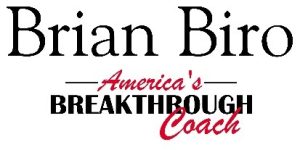
 Brian Biro is America’s Breakthrough Speaker of
Brian Biro is America’s Breakthrough Speaker of 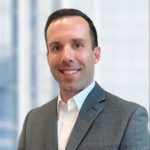

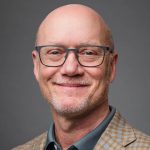 Charles E. Potts is Executive Vice President and Chief Innovation Officer for the
Charles E. Potts is Executive Vice President and Chief Innovation Officer for the 
 Hugh Massie is the Executive Chairman and Founder of
Hugh Massie is the Executive Chairman and Founder of 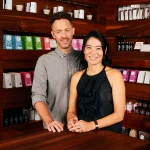 Elaine Read and Matt Weyandt, Founders of
Elaine Read and Matt Weyandt, Founders of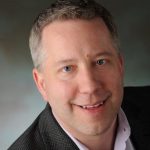 Scott Mautz, author of THE MENTALLY STRONG LEADER, is the founder and CEO of
Scott Mautz, author of THE MENTALLY STRONG LEADER, is the founder and CEO of 
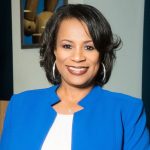 Dr. Lori A. Manns, Chief Creative Officer at
Dr. Lori A. Manns, Chief Creative Officer at 













